I am currently on vacation, writing to you from The Pacific Coast Highway. This is a road you used to be able to drive from San Francisco all the way to Los Angeles.
But no longer. A mudslide has made the highway impassable and there is a possibility that it never reopens. Thirty years ago my best friend and I were driving from Yosemite to Los Angeles and we talked about driving the PCH. There was no google maps back then so using a paper map we determinated it would be an extra 4 hours of driving.
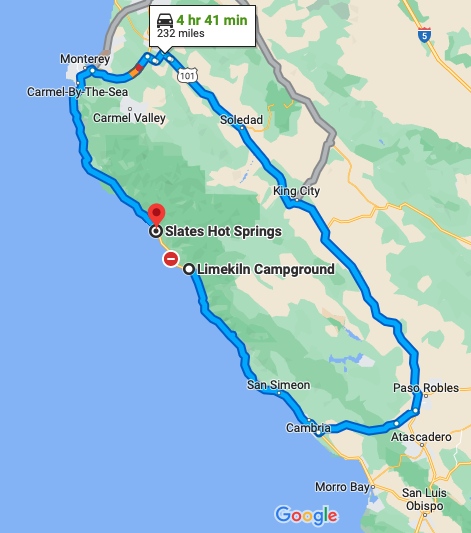

I don’t know why two twenty-something women were in such a hurry nor why we couldn’t have just left Yosemite a little earlier, but we took the 5 instead (that’s California speak for Interstate Highway 5.)
Now, if you want to drive the PCH from top to bottom the only way to do it is to double back and spend 4 plus hours driving around the mudslide.
Thirty years later and my decision is the same – I am not spending 4 hours to do that on this trip. It would be non-sensical, and all those hours on the 101 would make my family revolt. But for me it’s still the same 4 hours and I now wish I had done it back then so I could have checked it off my bucket list.
I call this the “future time fallacy” and it is the belief that time today is more valuable than time in the future. Many have tried to create antidotes to this such as “carpe diem”, “YOLO”, or “curing the somedays”, but these don’t exactly fit.
When it comes to life fulfillment the solution isn’t to maximize this moment because tomorrow may not come. The solution is to slow down time so that you have more time than you need.
It has taken me some time (no pun intended) to learn how to slow time, but I can now do it. I know this because I have plenty of moments where I have felt that a lot of time has passed, but then I look at the clock and it has barely moved.
Keep in mind that our perception of time is driven by three factors – Memory, Attention, and Anticipation or as Dickens called them — the ghosts of Christmas past, present and future.
Anyone who has ever experienced flow, as operationalized by the late Mihaly Csikszentmihalyi in his seminal book by the same name, knows what the slowing of time feels like.
If you’d like to get back more time in your life here are my 3 steps to building a foundation for slowing time on an on-going basis, not just when you’re in flow.
First, stop black hole behaviors including multi-tasking, task-switching, and building days that have no breathing room in them. Learn to consciously control time absorbers like binge watching or scrolling. You don’t have to be 100% disciplined at this, but you have to create the control and ability to be if you wanted to. If you can’t do this then stop reading now and come back when you can (sorry, that’s the parent in me talking!)
Second, learn how to connect with yourself mind, body, and spirit. I suggest 20 minutes a day of either meditation, body scans, stretching, mindful yoga, journaling, or any other contemplative practice that breaks up your busy life routine. YouTube has plenty of free resources to help you get started. The Zen proverb below shares my perspective on skipping this step!
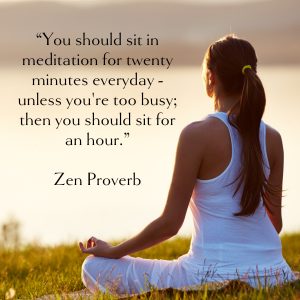

Finally, reframe your thinking from memory recall to memory recognition. That means in the moment recognize that you are creating a memory and log exactly the feelings that accompany it. If you have learned the first two steps this third step becomes second nature. Watch out for the impacts of awareness inhibitors like excessive volume, distractions, fear, or alcohol.
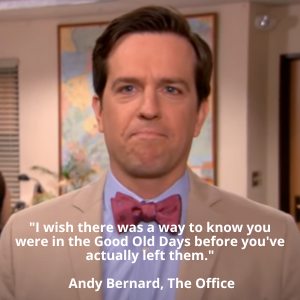

This took me a lot less time than I had allocated to write this issue so now I have an extra hour to enjoy this small section of the PCH (we are turning around in Big Sur).
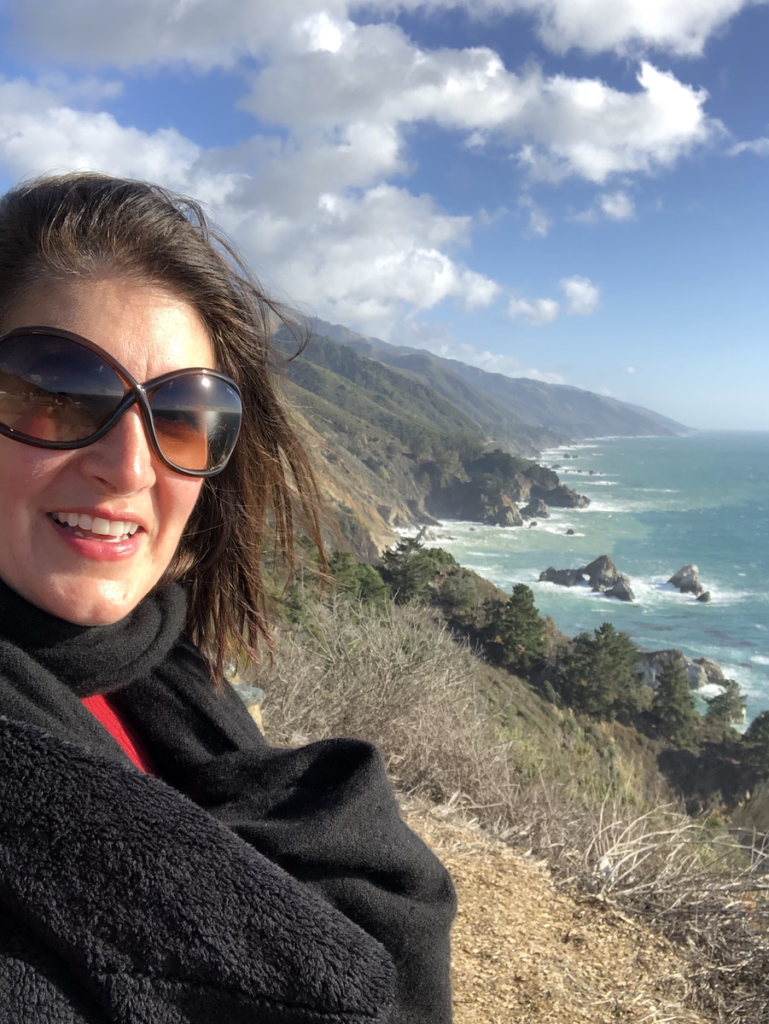

Thankfully, there is a Pacific Coast Highway in Oregon, Washington and New Zealand that I can still find the time to drive.
From the Executive Maven Toolkit
In each issue I share a simple tool from our library and today I am sharing my framework for Mindset De-railers and Re-railers.
Once you have learned how to do a body scan you may notice that something isn’t feeling just right. If you can pinpoint where in the body you might be feeling off then it can provide a clue as to what is getting in your way.
These three simple re-railers are a great first step to getting you back on track.
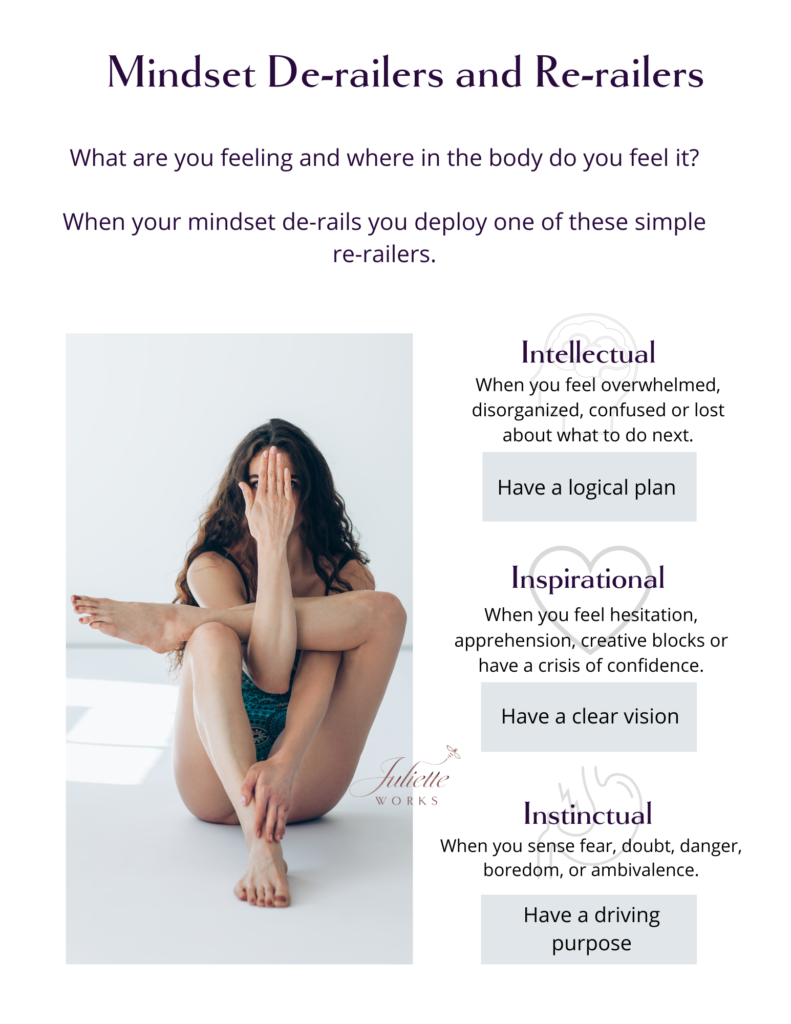

From Elizabeth on LinkedIn
Every issue I spotlight a post that most resonated with my network and this time it’s this personal reflection about memories after the unexpected loss of a friend.
You can read the full post here and I hope it resonates with you as well.
Research and Expert Resources
While I usually like to share the latest research, with summer ending I am reaching back into the archives to remind you that one or two weeks of holiday is not the most important break you can take for your health and productivity.
Frequent, short breaks, particularly to break up a day of meetings helps you manage stress in a busy day.
This 2021 Work Trend Index Special Report from Microsoft Worklab shows that breaks not only reduce exhaustion, but they improve our ability to focus and engage throughout the day.
These EEG images show one example of where the research supported this conclusion.
Back to school and the busy year-end at work is only a few weeks away, so I invite you to keep these breaks in mind for the coming months.
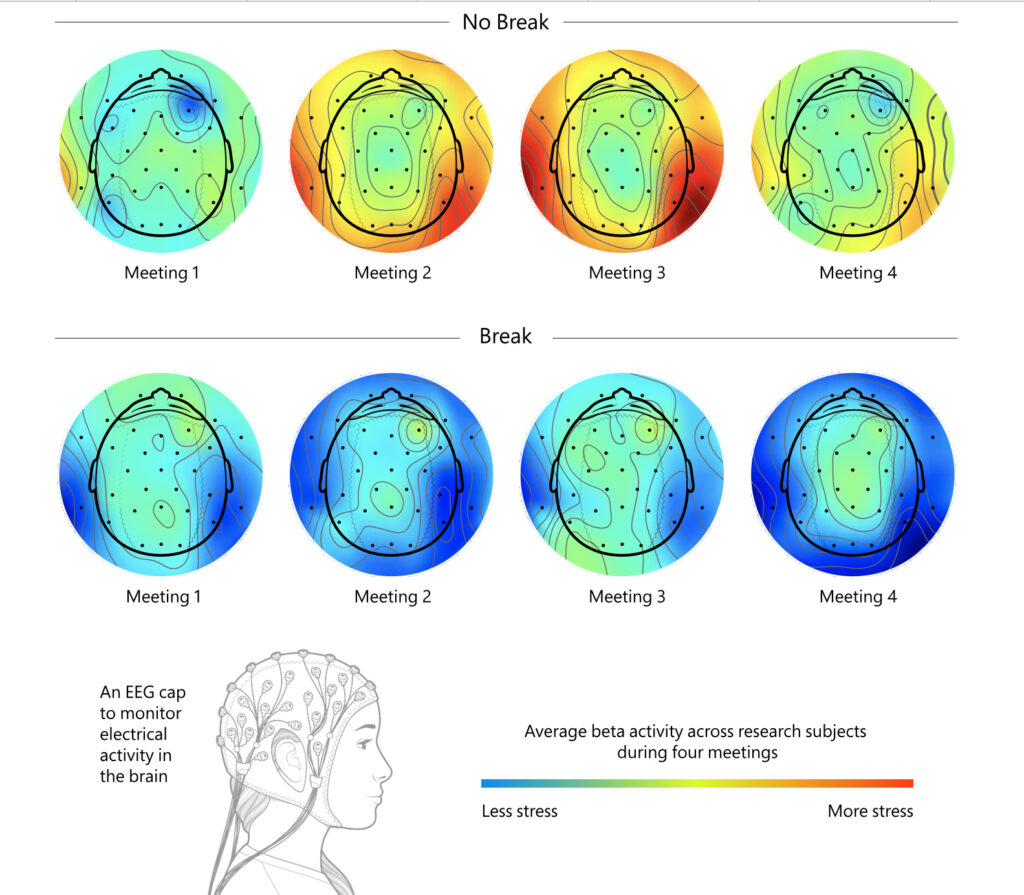

Links and Resources
The Executive Maven has been added to the Juliette Works blog, which has other blog posts on a variety of different career topics. You can check it out here.
On 1 September our prices will be going up for all Executive Team programs, speaker engagements, and Masterclasses. If you’ve been considering having me as a speaker, coach or teacher then reach out to before 1 September.

